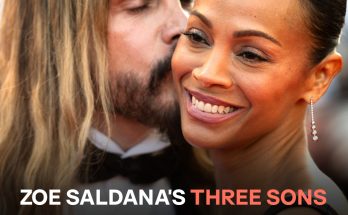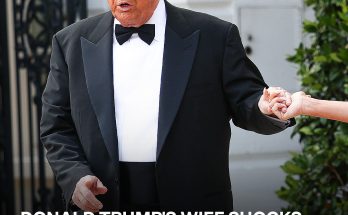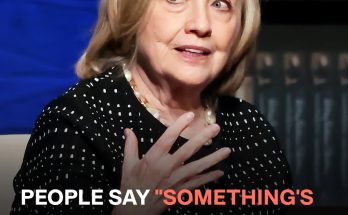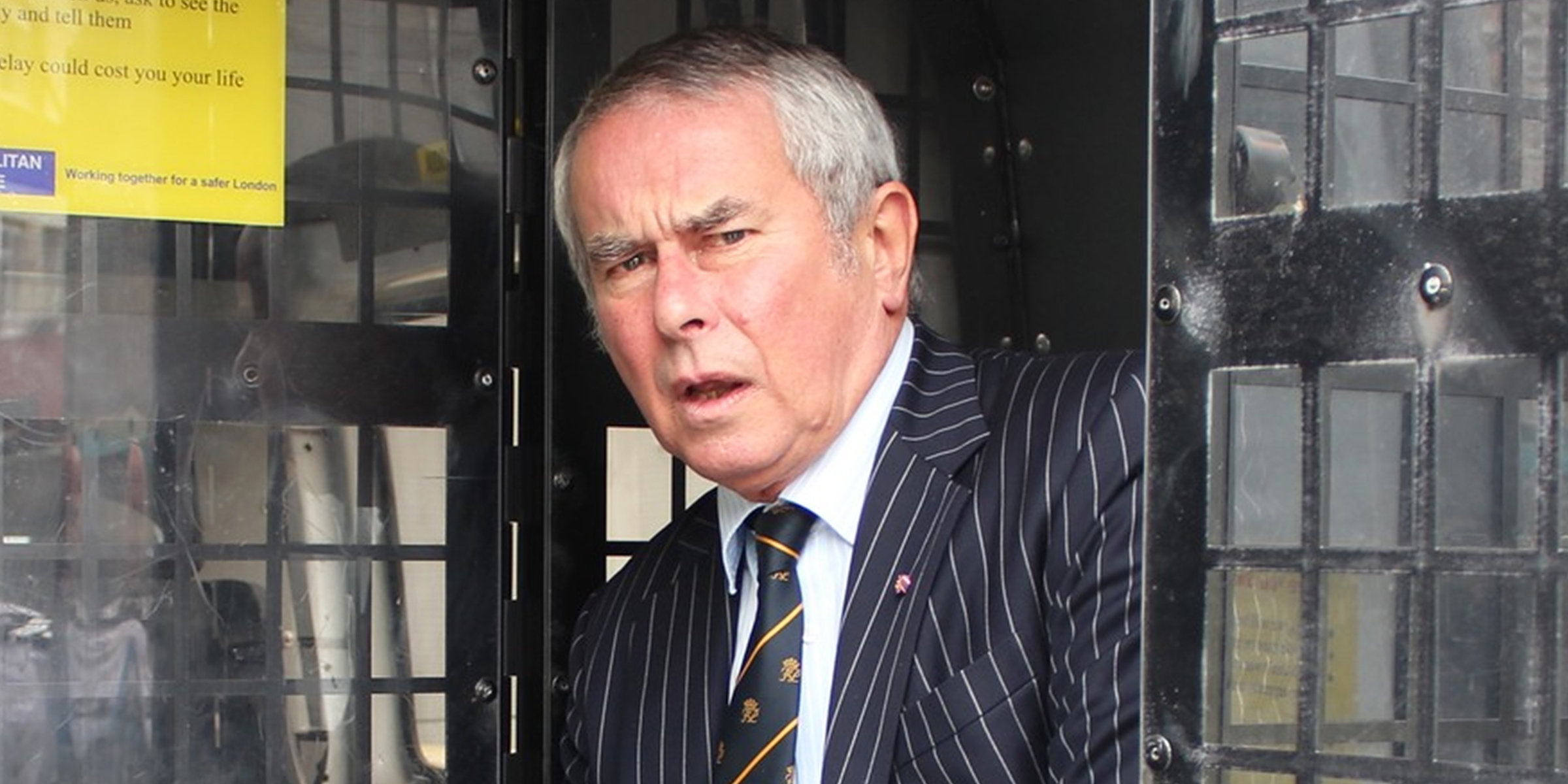
Princes Harry and William’s Former Bodyguard Graham Craker Dies – Details
In addition to reports disclosing the passing of Prince Harry and Prince William’s former bodyguard, his sons have spoken out about the tragedy.
Prince William and Prince Harry are mourning the loss of Graham Craker, their former royal bodyguard and a significant presence during their childhood. He played an important role in their lives, especially during the days following the death of their mother, Princess Diana. He was 77 years old at the time of his passing.
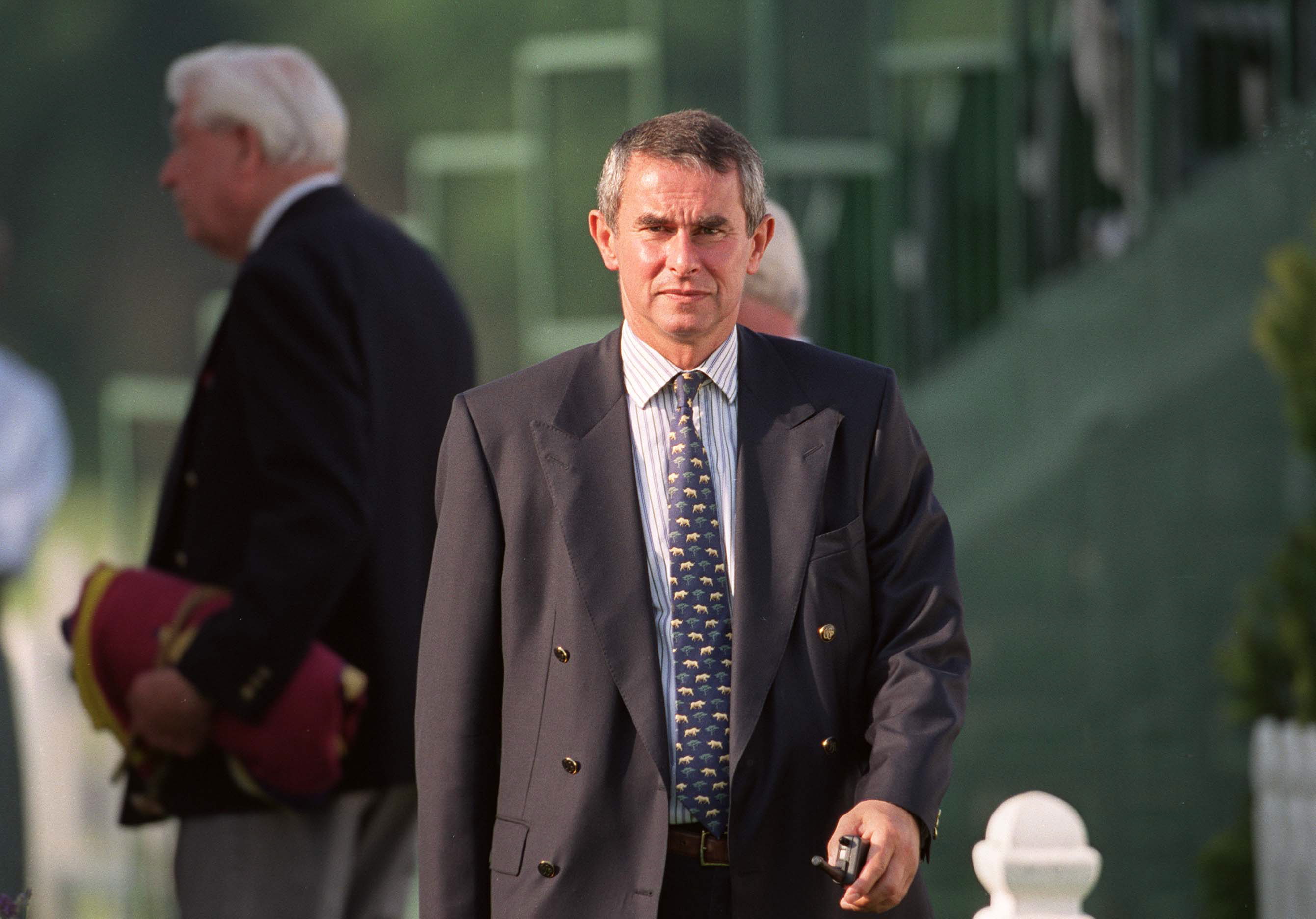
Graham Craker at the Eton Tea Party in Eton, England on June 16, 1999. | Source: Getty Images
News of Craker’s death was first reported by The Sun, prompting a wave of reflection on his enduring connection to the royal family. Previously known to William and Harry by the affectionate nickname “Crackers,” the late bodyguard was a quiet yet constant presence during their formative years.
As thousands lined the streets to pay their respects to their late mother, Craker walked just behind the then-young princes during her funeral procession from St. James’ Palace to Westminster Abbey — a moment etched into the public’s memory.
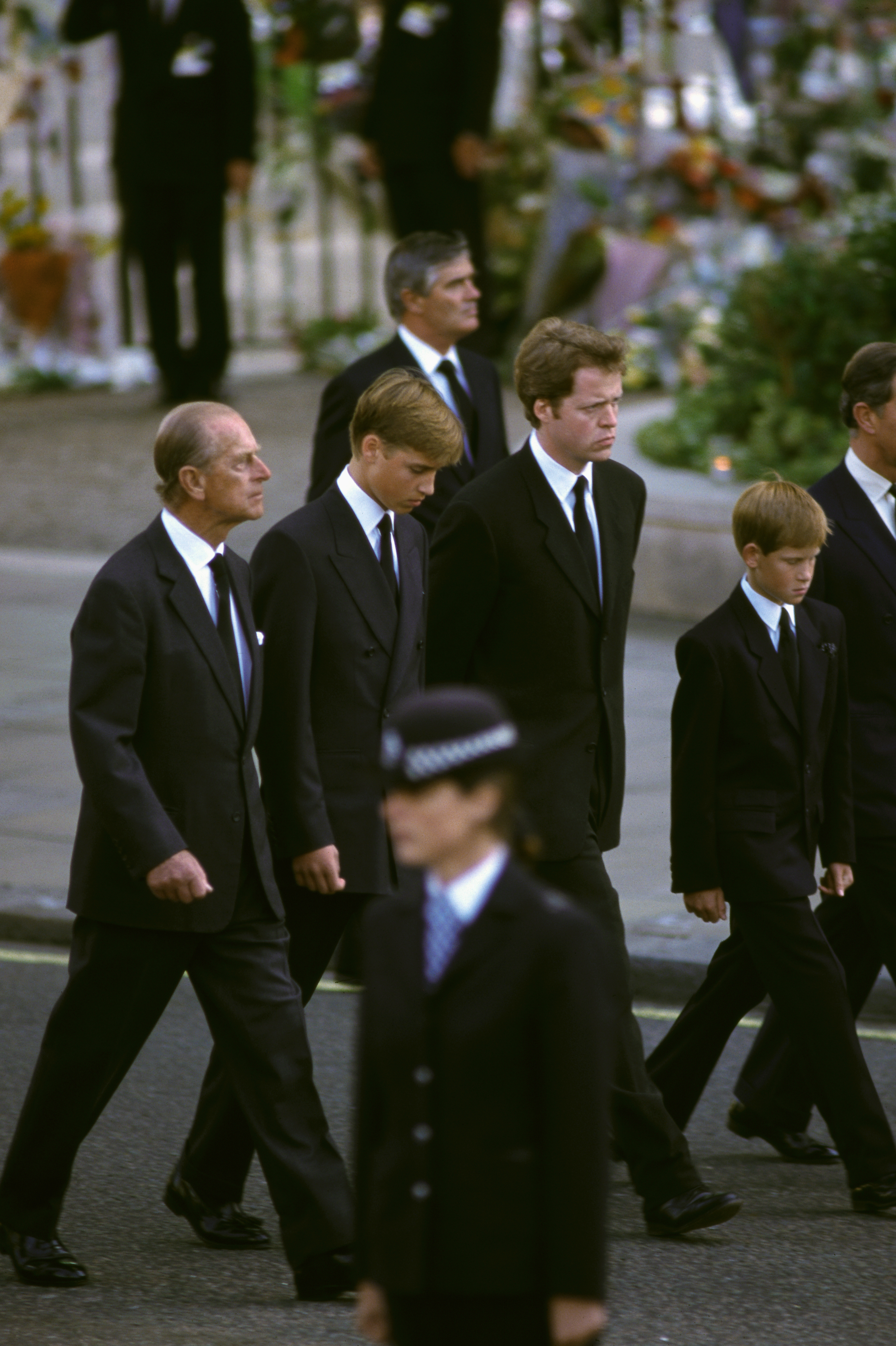
Philip, Duke of Edinburgh, Prince William, Earl Spencer, and Prince Harry walk behind Princess Diana’s casket during her funeral procession in London, England in 1997. | Source: Getty Images
Later, he rode in the front of the hearse that carried Diana to her final resting place at Althorp House. In an extraordinary display of the nation’s grief, so many flowers were thrown at the vehicle that Craker was seen stepping out repeatedly to clear the windshield.
Harry recalled this moment in his memoir, “Spare,” writing that it was Craker who kept returning to the road to gently move the floral tributes.
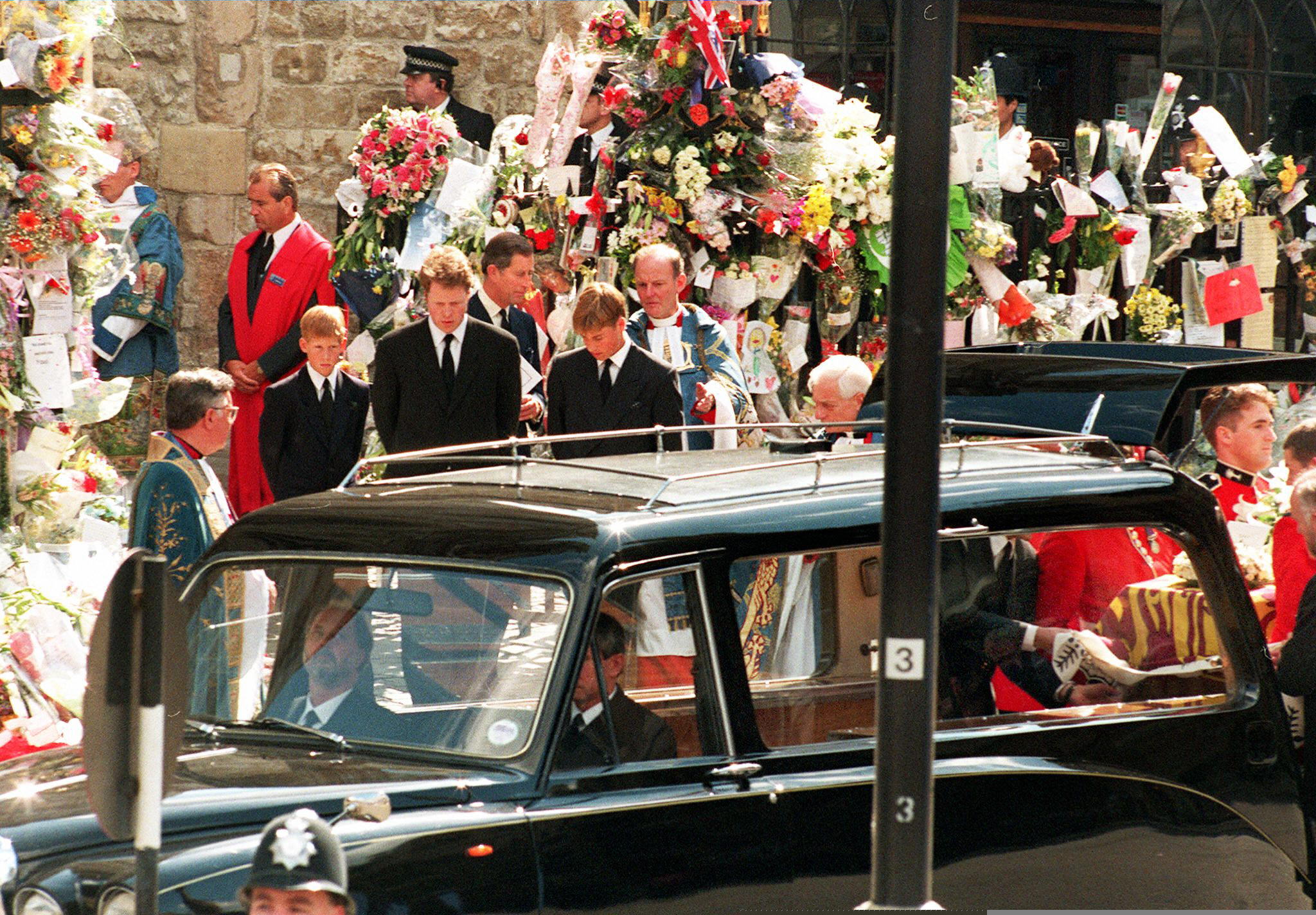
Earl Spencer with Prince Harry and Prince William as the trio participate in Princess Diana’s funeral procession amid hoards of flowers and tributes from the public. | Source: Getty Images
The Prince also noted how fond he and his brother were of Craker, finding great amusement in the nickname they had given him — one that stuck throughout the years.
“Willy and I liked him a lot. We always called him Crakers, as in ‘Graham Crackers.’ We thought that was hysterical,” reads a portion of “Spare.”
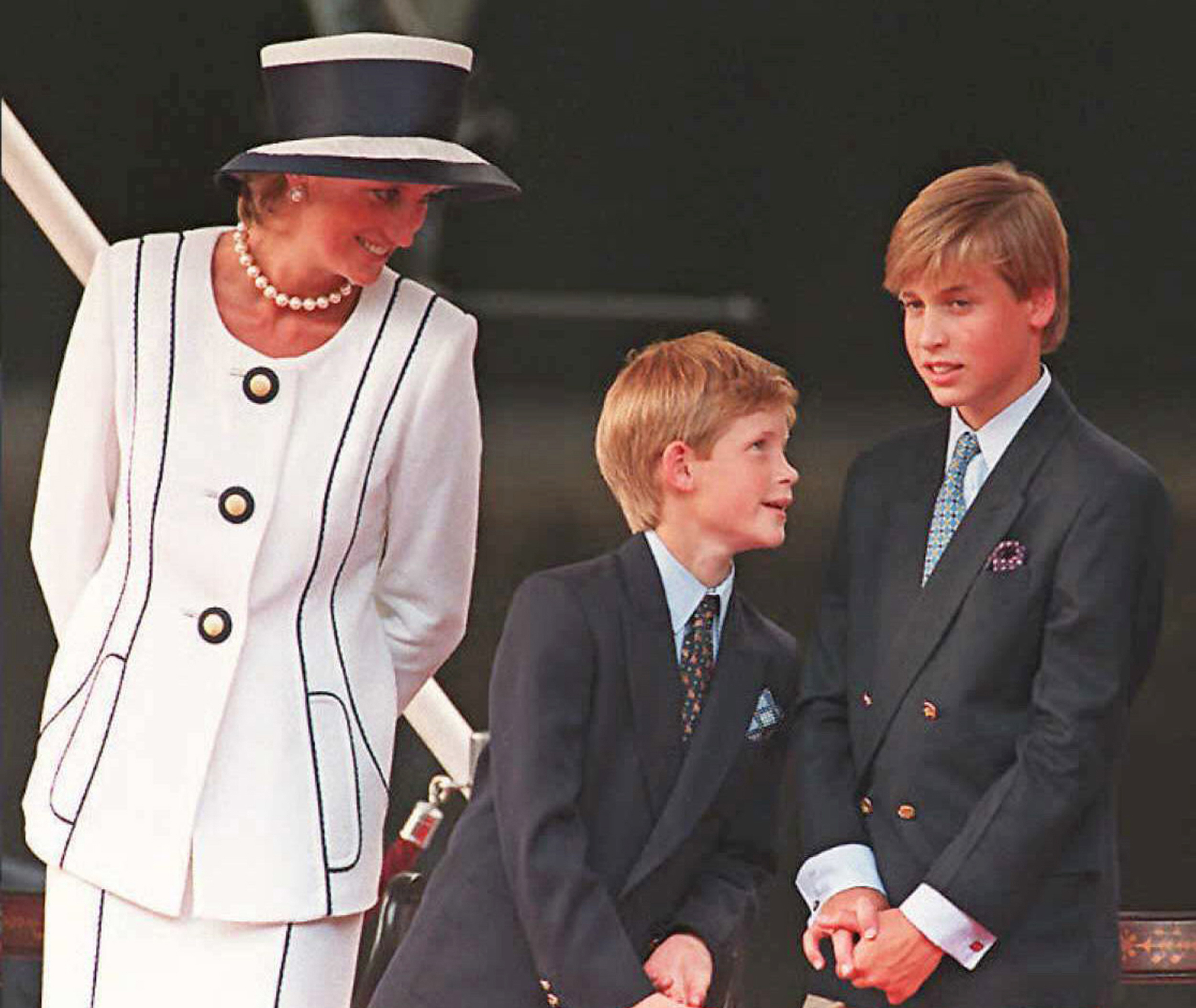
Princess Diana with Prince Harry and Prince William during the commemorations of VJ Day in London, England on August 19, 1995. | Source: Getty Images
Craker’s dedication to the royal family extended far beyond that sorrowful moment. He had been captured in family photos accompanying Harry and his brother on outings, including a trip to Alton Towers in 1994, and was later seen among the invited guests at William and Princess Catherine’s 2011 wedding.
His professional legacy was marked by more than three decades with the Metropolitan Police, including 15 years as a royal protection officer. In recognition of his service, the late Queen Elizabeth II awarded him the Royal Victorian Order.
Even after his retirement in 2001, Craker remained active in his local community in Ware, Hertfordshire, where he volunteered with charitable organizations.
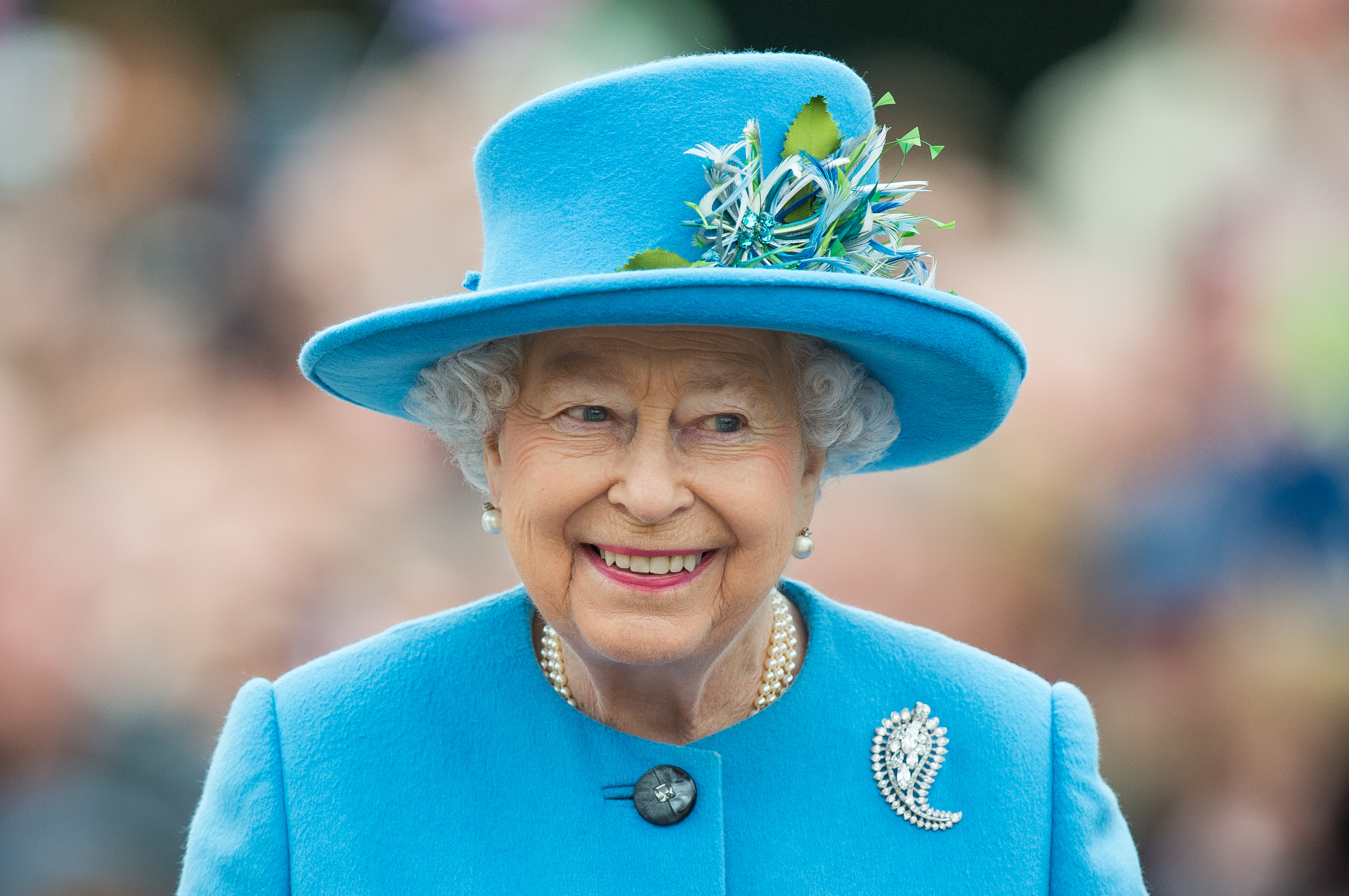
Queen Elizabeth II touring the Queen Mother Square in Poundbury, Dorset on October 27, 2016. | Source: Getty Images
Following reports of Craker’s passing, his sons, James and Matthew, took to Facebook to share a deeply moving tribute to their father. “It’s with heavy hearts that my brother and I announce the passing of our beloved dad, Graham Craker (Crackers),” they wrote, their words resonating with grief and pride.
“He was an incredible man — our hero, our rock — and meant everything to us,” they continued. The heartfelt message paid tribute to the life Craker led, both in service to others and as a devoted father, grandfather, friend, and colleague.
“Words can’t describe the pride we feel in how he lived his life so selflessly, not only in his professional career but in his personal life, right up to the very end,” the bereaved sons expressed.
They also described him as someone “loved by so many,” and invited others to share their own memories and photos in his honor.
Accompanying their tribute was a collection of images that offered a glimpse into the warmth and vitality of Craker’s life beyond the public eye.
Among them were snapshots of cherished family moments: Craker proudly flanked by his sons on someone’s wedding day; smiling with his arms wrapped around them on a couch, laughter frozen in time; and images of him in more personal settings.
Other photos showed a more reflective side: Craker standing alone beside blooming magnolia trees, seated in a telephone booth, and enjoying a wildlife outing somewhere in Africa. These glimpses painted the portrait of a man whose presence was as grounding as it was joyful — an individual who meant as much at home as he did in the spotlight.
In addition to the heartfelt tribute from his sons, Craker was also honored by the team at Southern Maltings, a local arts hub where he had become a beloved presence. Describing him as both a friend and a colleague, the organization shared the news of his passing with sorrow, while expressing gratitude for his enduring contributions.
“Graham has been on our journey almost from the very beginning,” they penned, adding that he had been “behind our bar for the whole of that time, making sure everyone has the best of times.”
His dedication went far beyond pouring drinks — he was the only volunteer entrusted with his own set of keys, a testament to the level of trust and respect he had earned.
Whether or not there was an event on, Craker could often be found quietly preparing the space, ensuring everything was spotless and ready for others.
For the Southern Maltings team, Craker’s impact wasn’t just practical — it was deeply personal. He was remembered for his laughter, his kindness, and his constant willingness to help. They referred to him as “our very own James Bond,” nodding to his storied past as a royal protection officer and his effortlessly cool demeanor.
But it was his humanity that left the deepest mark. “Our broken hearts go out to his family and everyone who knew him,” noted the team, concluding with a simple but poignant promise, “RIP Crackers, we’ll make sure you are remembered behind the bar and will raise a glass for you this evening.”
Underneath their message, the team shared a warm photo of Craker standing proudly at the bar, dressed in his signature Southern Maltings apron and bow tie. Two colleagues stood to one side of him, and all three wore smiles that spoke volumes about the camaraderie they shared — a final, fitting image of a man whose legacy lives on in the lives he touched.
While Craker was admired by many for his work later in life, it was his earlier experiences with the royal family — particularly during a time of immense grief — that shaped much of the public’s reverence for him. In one of his few public reflections, Craker described the devastating moment he learned of Diana’s fatal car crash while at Balmoral with the royal family.
Quietly using a house phone to contact Buckingham Palace, he was told that Dodi Fayed had died and the Princess had suffered a broken arm. When the final confirmation came that Diana, too, had passed, he recalled being overwhelmed with sorrow. Speaking about the morning after, he remembered encountering a young William outside walking his dog.
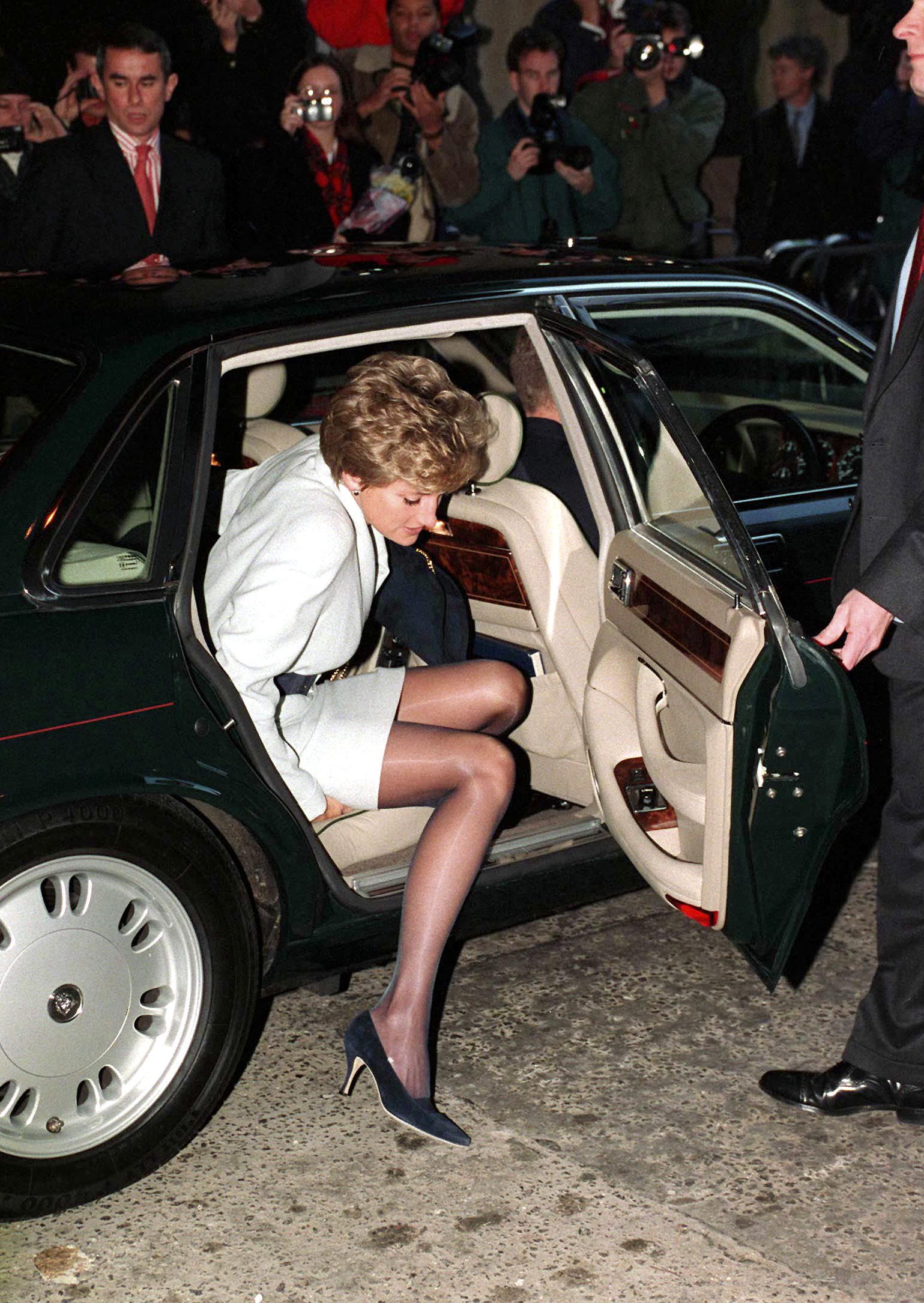
Princess Diana stepping out of a car at Mortimer Market Centre with Graham Craker standing in the background in London, England on December 1, 1994. | Source: Getty Images
Approaching him with quiet compassion, Craker offered his condolences, to which William simply responded, “Thank you.” Craker dubbed this moment as perhaps the most emotional part of the week surrounding her death.
At Diana’s funeral, the bond between the Prince and his bodyguard was clear — Craker recalled standing behind the hearse, exchanging a solemn glance with William. That brief, wordless moment, he believed, offered the young Prince a sense of comfort.
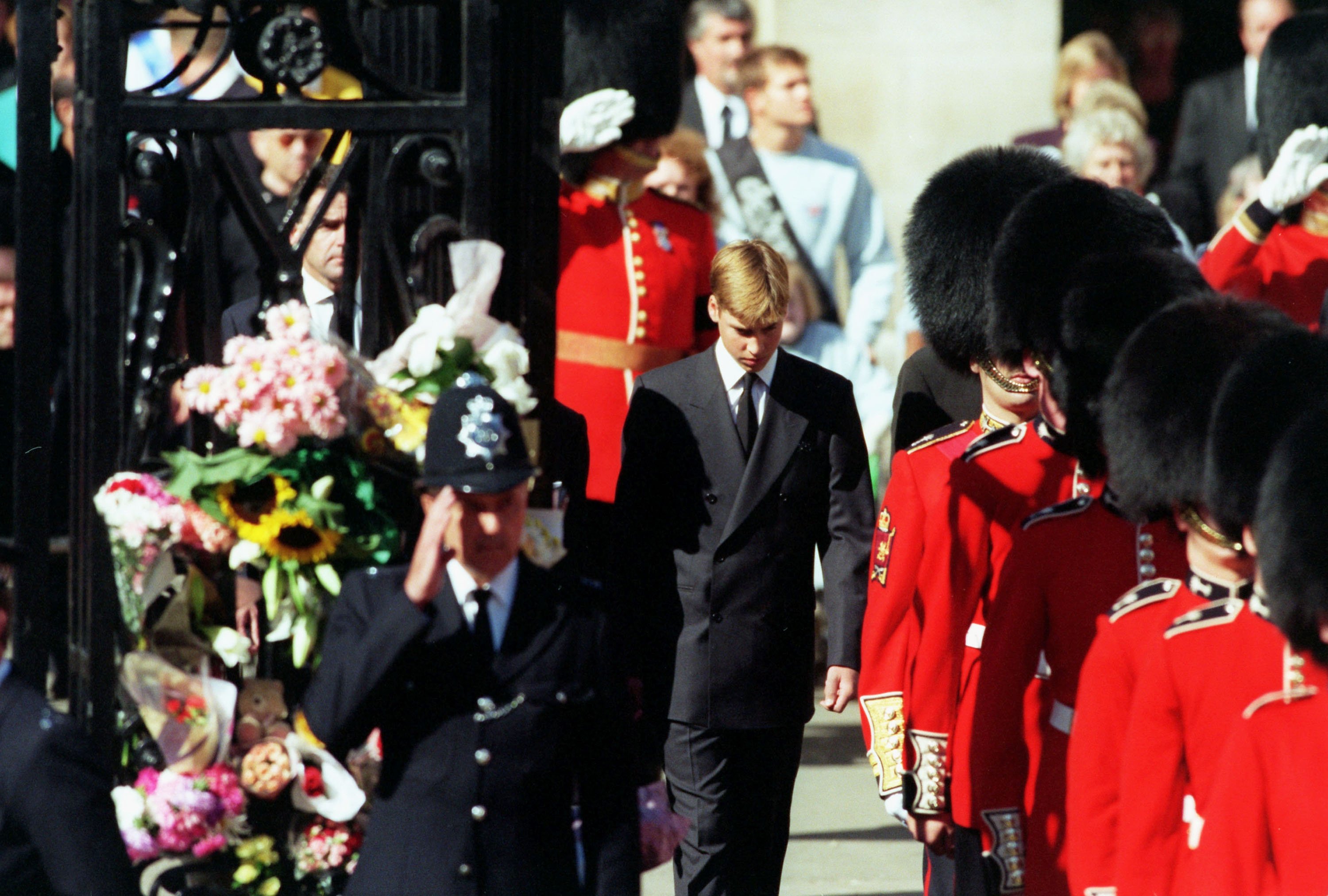
Prince William during his late mother’s funeral procession. | Source: Getty Images
Speaking to The New York Post (The Post) in 2017, Craker opened up further about the days surrounding Diana’s death, offering a rare and intimate glimpse into a moment that forever altered the course of royal history.
At the time of Diana’s passing, Craker was with the royal family in Scotland. The moment he returned to London, he was struck by the overwhelming weight of national sorrow.
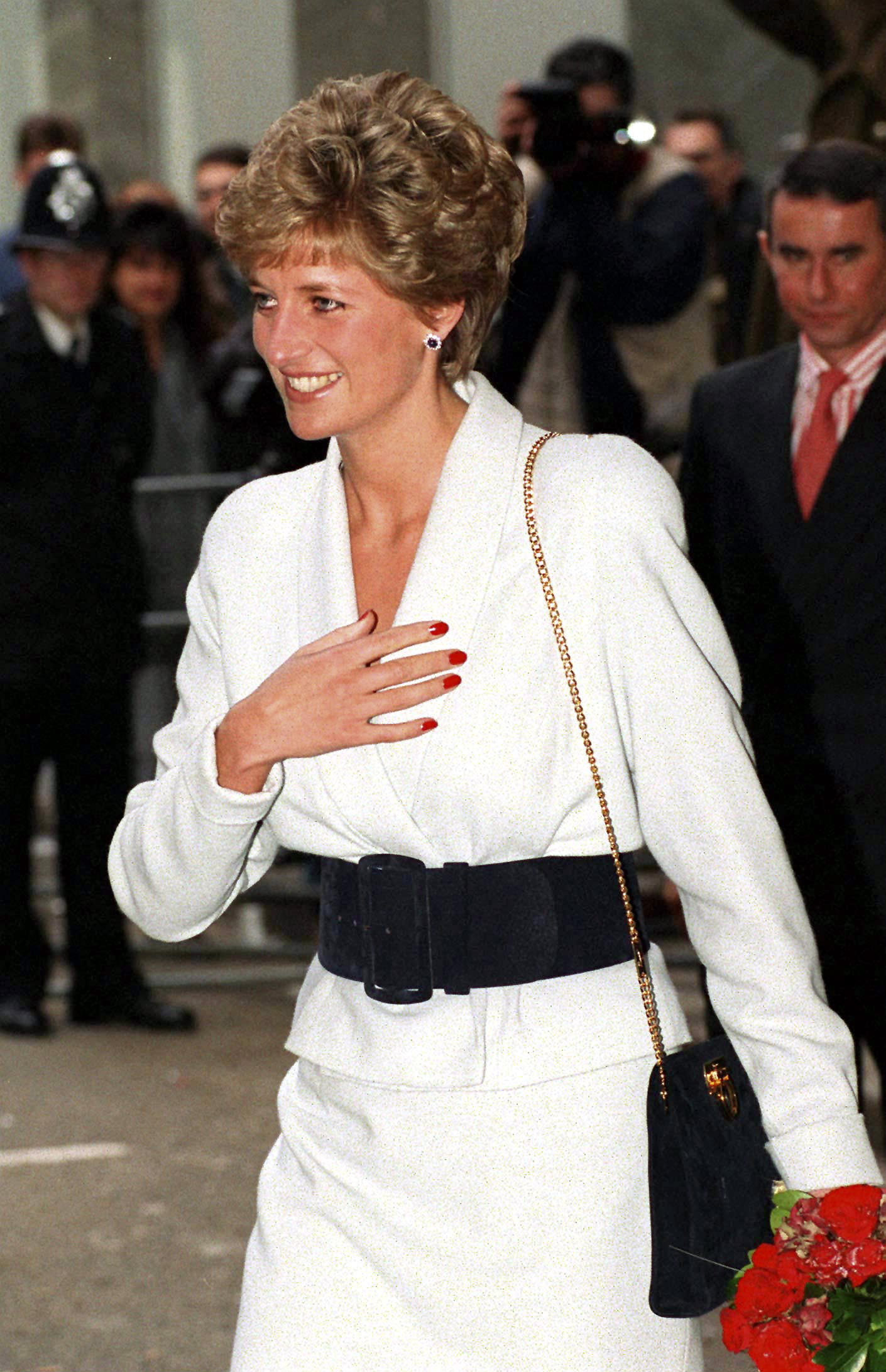
Princess Diana smiling at the crowd gathered outside Mortimer Market Centre, while Graham Craker looks on. | Source: Getty Images
“My colleagues there were saying they’d never seen anything like it before. There was a cloud over London. It was like slow motion … Everybody could feel the sadness,” he recounted.
His words painted a haunting portrait of a city brought to a near standstill by grief — a memory that seemed to linger long after the formalities of mourning had ended.
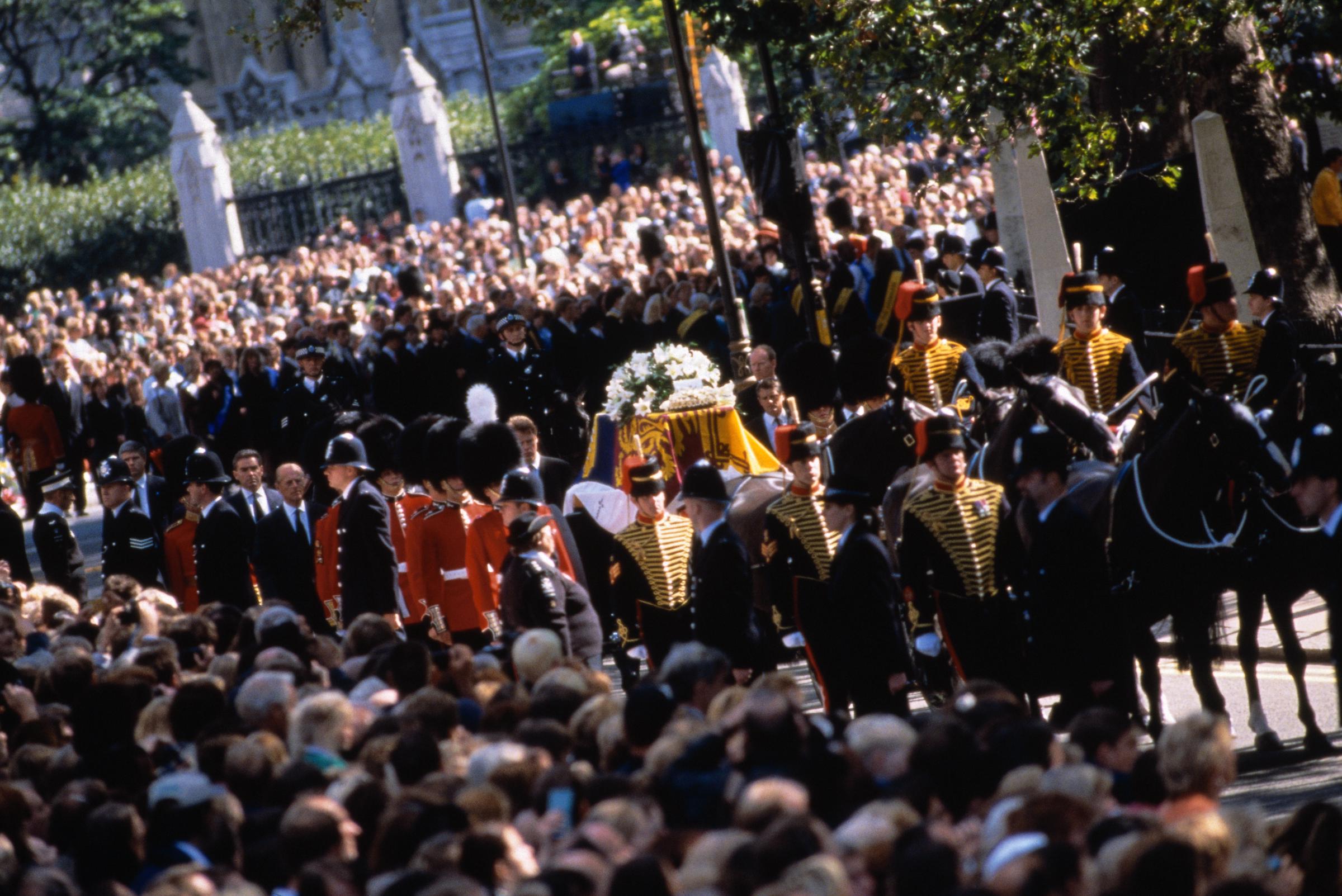
Members of the royal family, royal officers and escorts, and the public watching on during Princess Diana’s funeral procession in 1997. | Source: Getty Images
Perhaps most poignant of all was the memory Craker carried from the end of Diana’s funeral. As her coffin was loaded into the hearse for the journey to Althorp, he stood at the rear of the vehicle.
“William looked up and acknowledged me. I looked toward him and nodded,” he said. In that silent exchange, a profound message was conveyed — one of familiarity, reassurance, and shared sorrow.
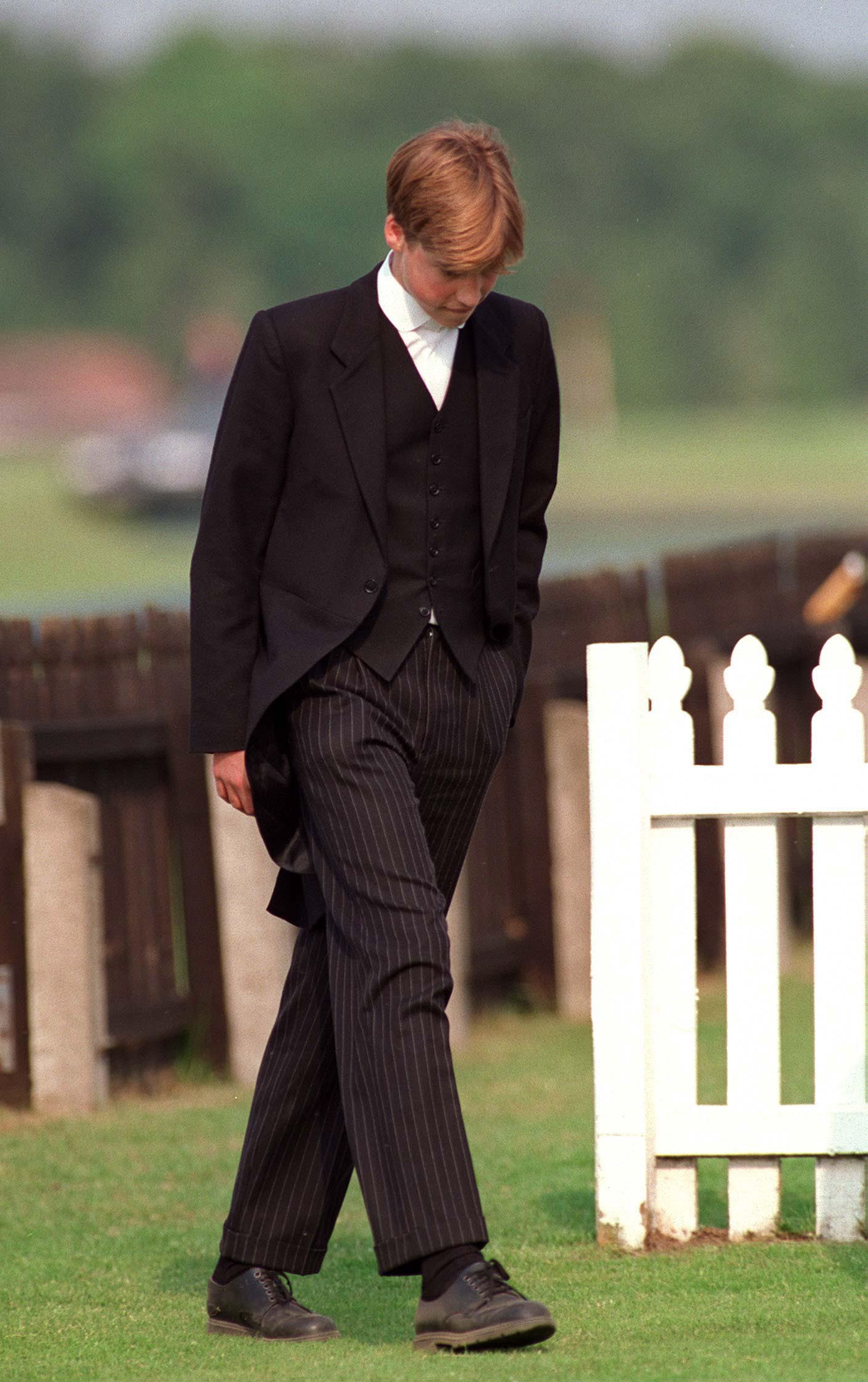
Prince William walks solo during the Eton Boys Tea Party in Windsor, England on June 19, 1996. | Source: Getty Images
“William was comforted that I was with his mum on her final journey,” Craker reflected. It was a moment that transcended duty, revealing the bond he had formed with the young royals during the most vulnerable period of their lives.
During the same interview with The Post, Craker also addressed why he chose to participate in the film “Diana: The Day We Said Goodbye.” Unlike others, he felt the project struck a respectful tone and wasn’t driven by personal gain.
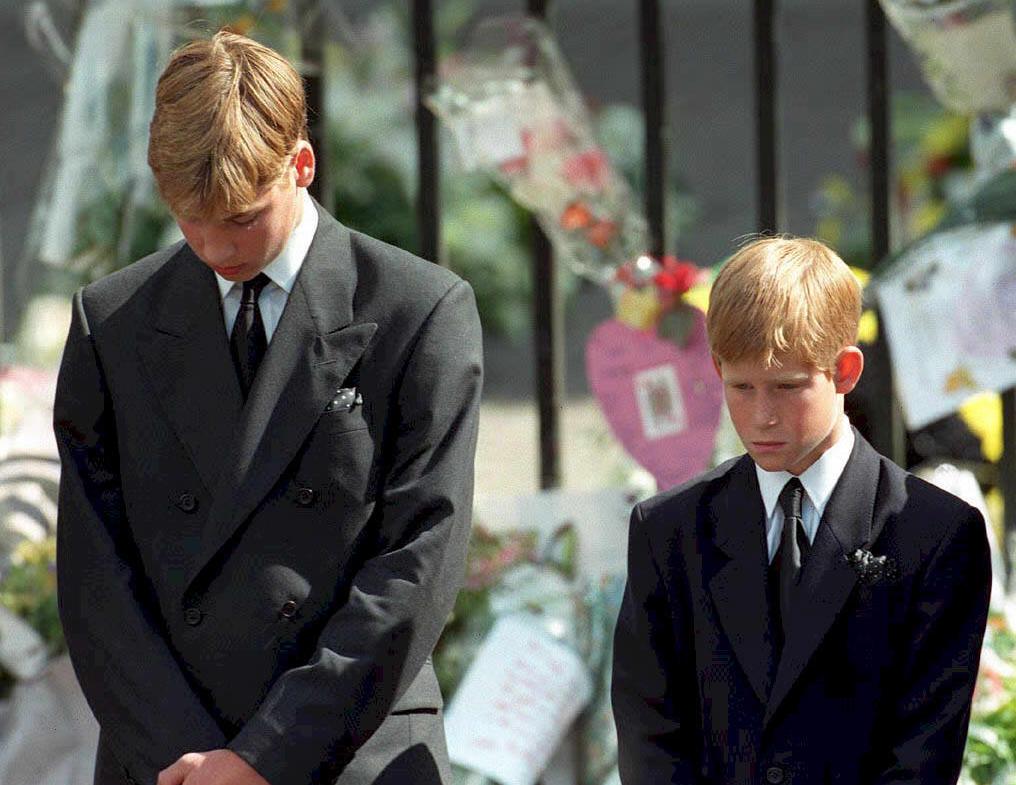
Prince William and Prince Harry sorrowfully watch on as their late mother’s coffin gets taken out of Westminster Abbey. | Source: Getty Images
“Lots of people have been jumping on the bandwagon,” he remarked, alluding to the influx of tell-alls and sensationalized accounts that followed Diana’s passing. But this documentary, he believed, “was going to be a very balanced program.”
For Craker, contributing to it wasn’t about the spotlight — it was about honoring a woman he had served loyally, and the two young sons she left behind. “I have respect for William and Harry and feel it adds a fine stripe to their documentary,” he said.
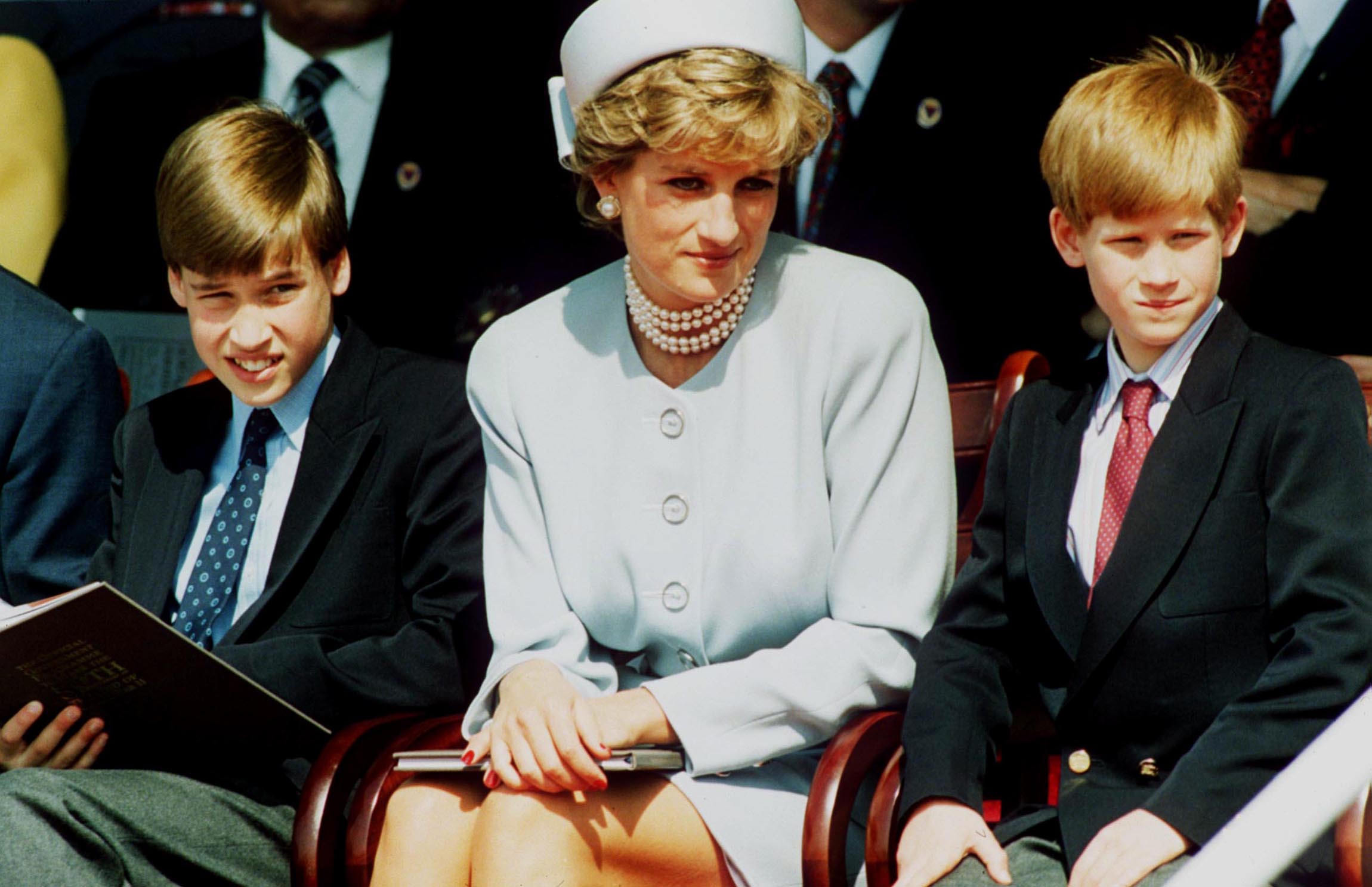
Prince William, Princess Diana, and Prince Harry at the Heads of State VE Remembrance Service in London, England on May 7, 1995. | Source: Getty Images
Recalling the moment he learned of Diana’s death, Craker admitted how difficult it was to comprehend. “It takes a while to absorb and then you feel the need to make sure what you’re hearing is true — and that didn’t take long to establish,” he shared.
Even in the fog of shock, his instincts as a former officer kicked in. “From there on, it’s the policeman’s instinct to assess the situation and carry on,” divulged Craker.
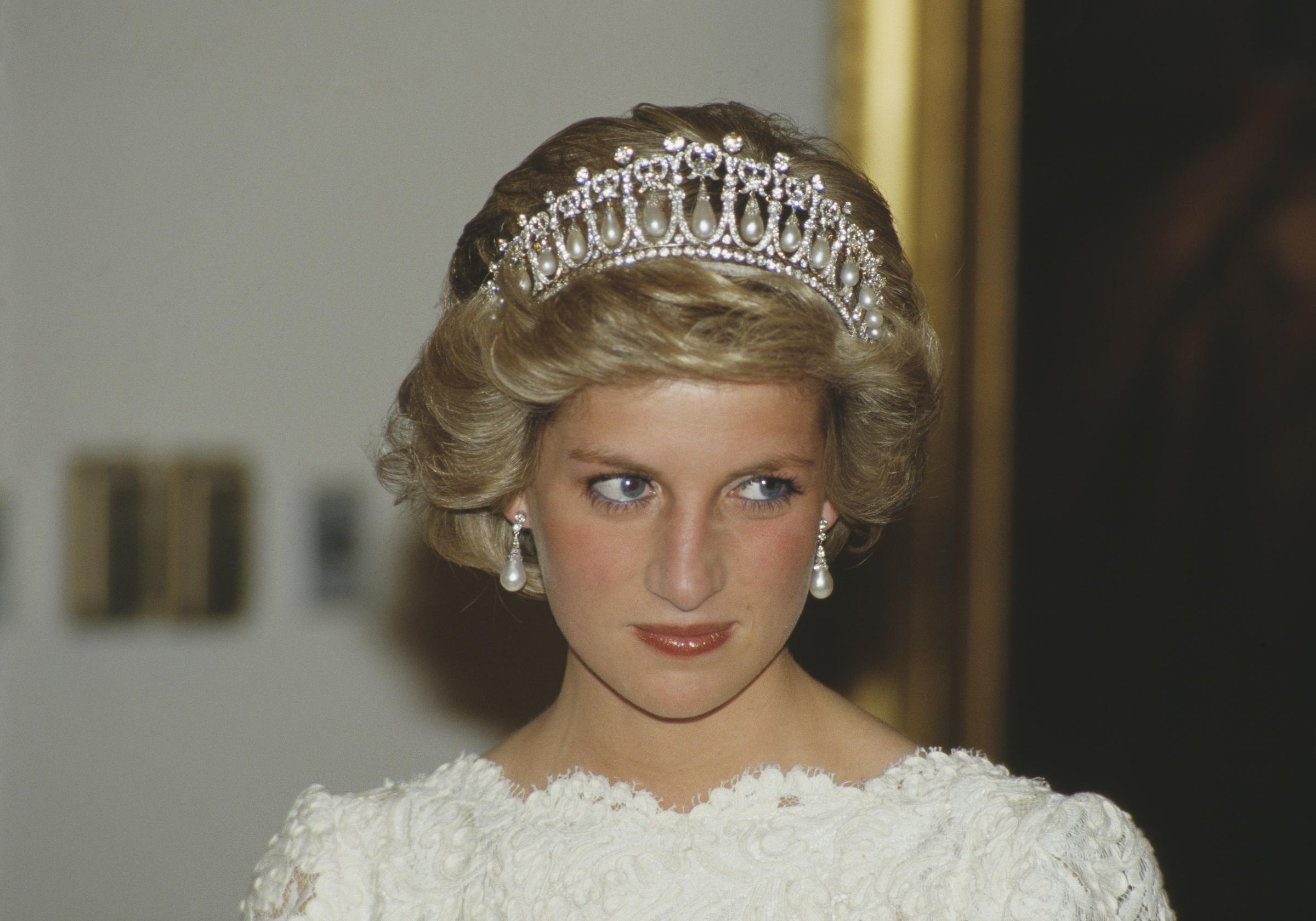
Princess Diana at a dinner at the British Embassy in Washington, D.C., in November 1985. | Source: Getty Images
When asked whether he was able to offer comfort to William and Harry, he replied simply, “Not really. That was obviously the duty of the parents, family and everybody else they thought could help.” What he did recall, however, was the heavy atmosphere that surrounded their encounters — a quiet, shared sorrow that words could never quite capture.
As the funeral procession made its way through London, Craker was struck by the overwhelming wave of collective mourning.
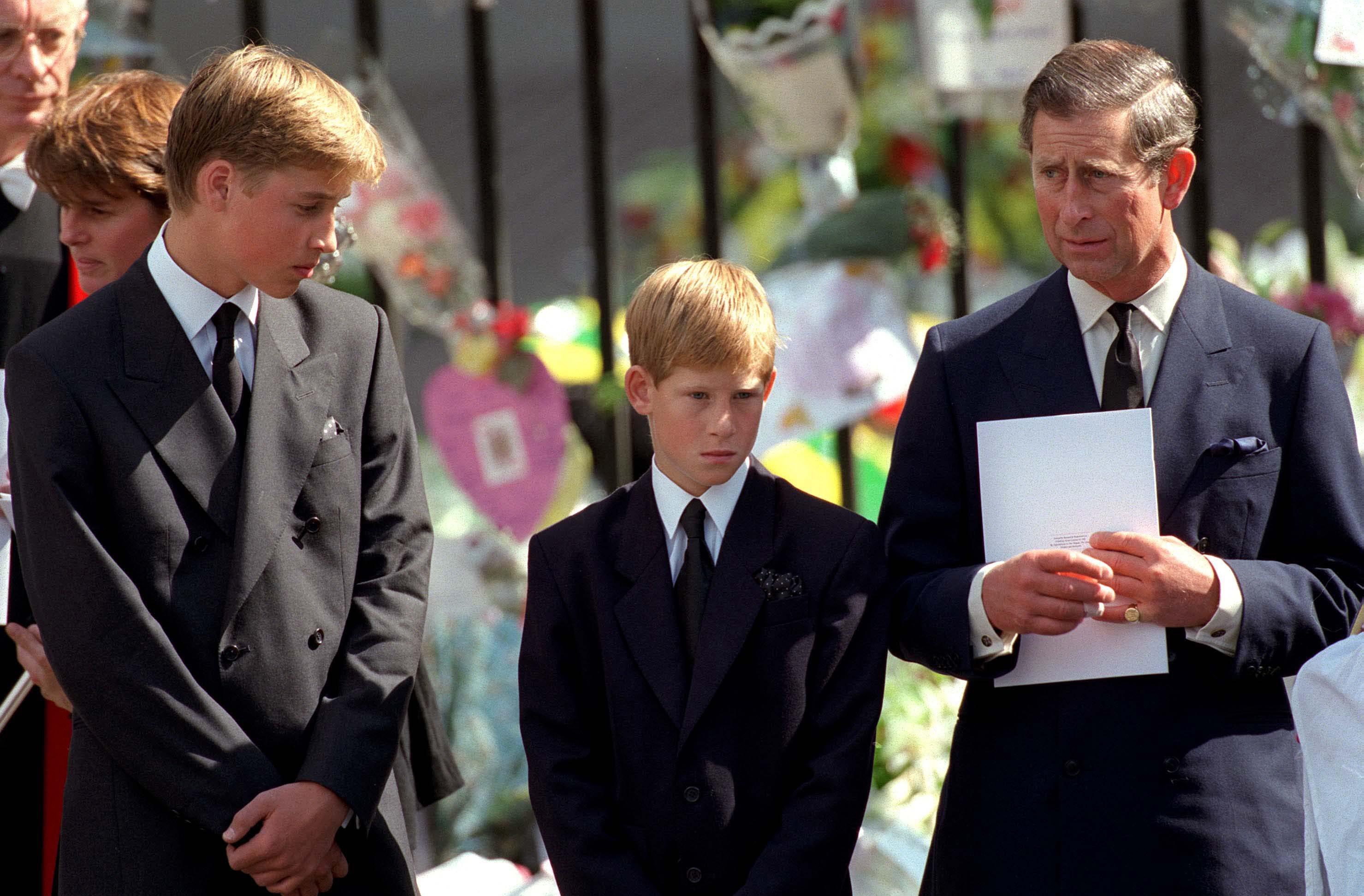
Prince William and Prince Harry with their father, King Charles III, during Princess Diana’s funeral procession. | Source: Getty Images
“There were people in tears, on their knees crossing themselves, throwing flowers at the hearse. The bit that amazed me is when we got on the northbound M1, even the southbound traffic had stopped and people got out of their cars and bowed in respect,” he remembered.
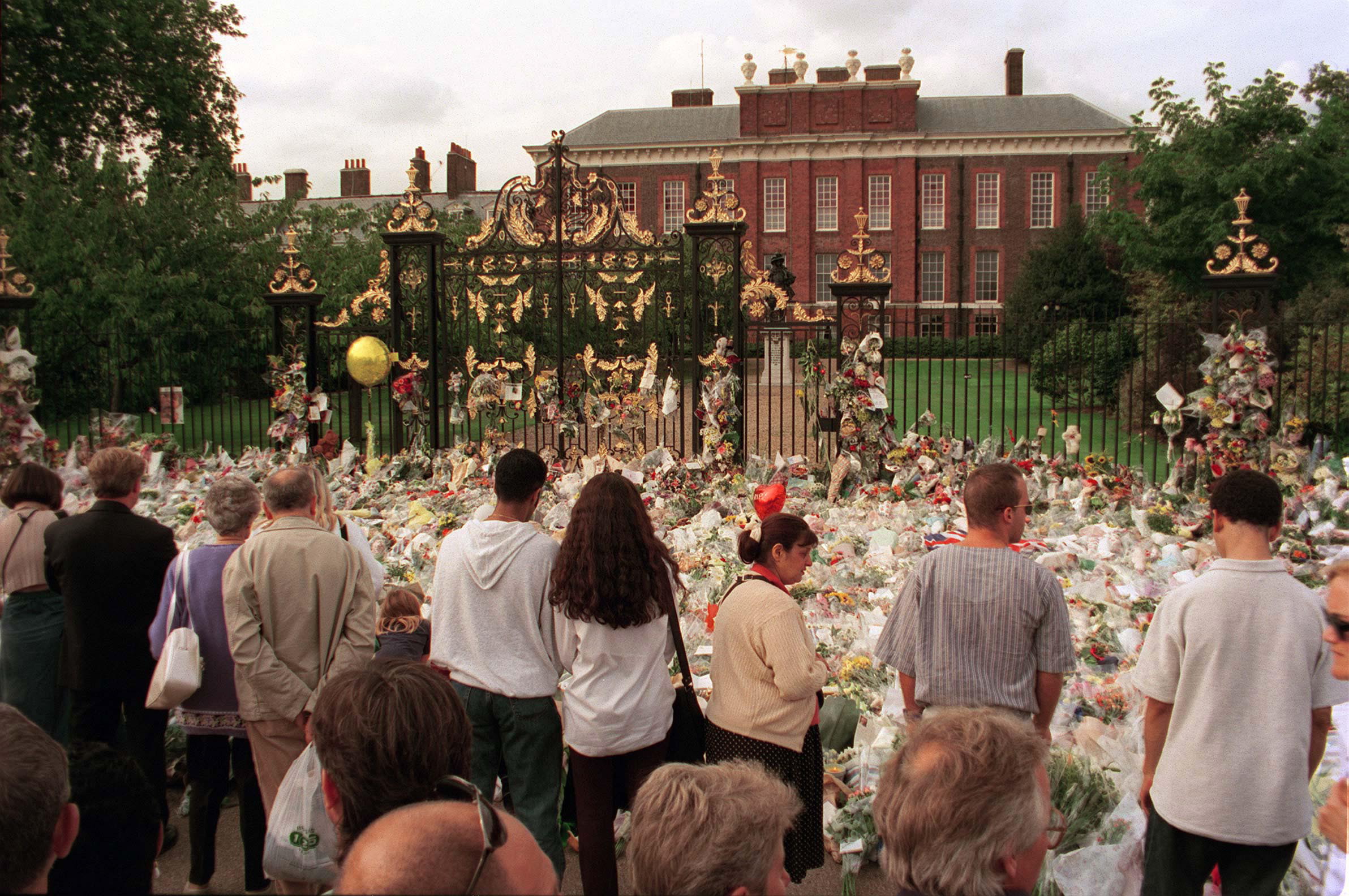
Crowds gathered before tributes dedicated to Princess Diana in London, England on September 1, 1997. | Source: Getty Images
It was a moment that, even years later, never quite left him. “Especially now, I do … It comes on TV and I see myself in the hearse and think, ‘Is that really me?’ That’s how surreal it was,” commented Craker when asked if he still thought about the tragedy long after it happened.
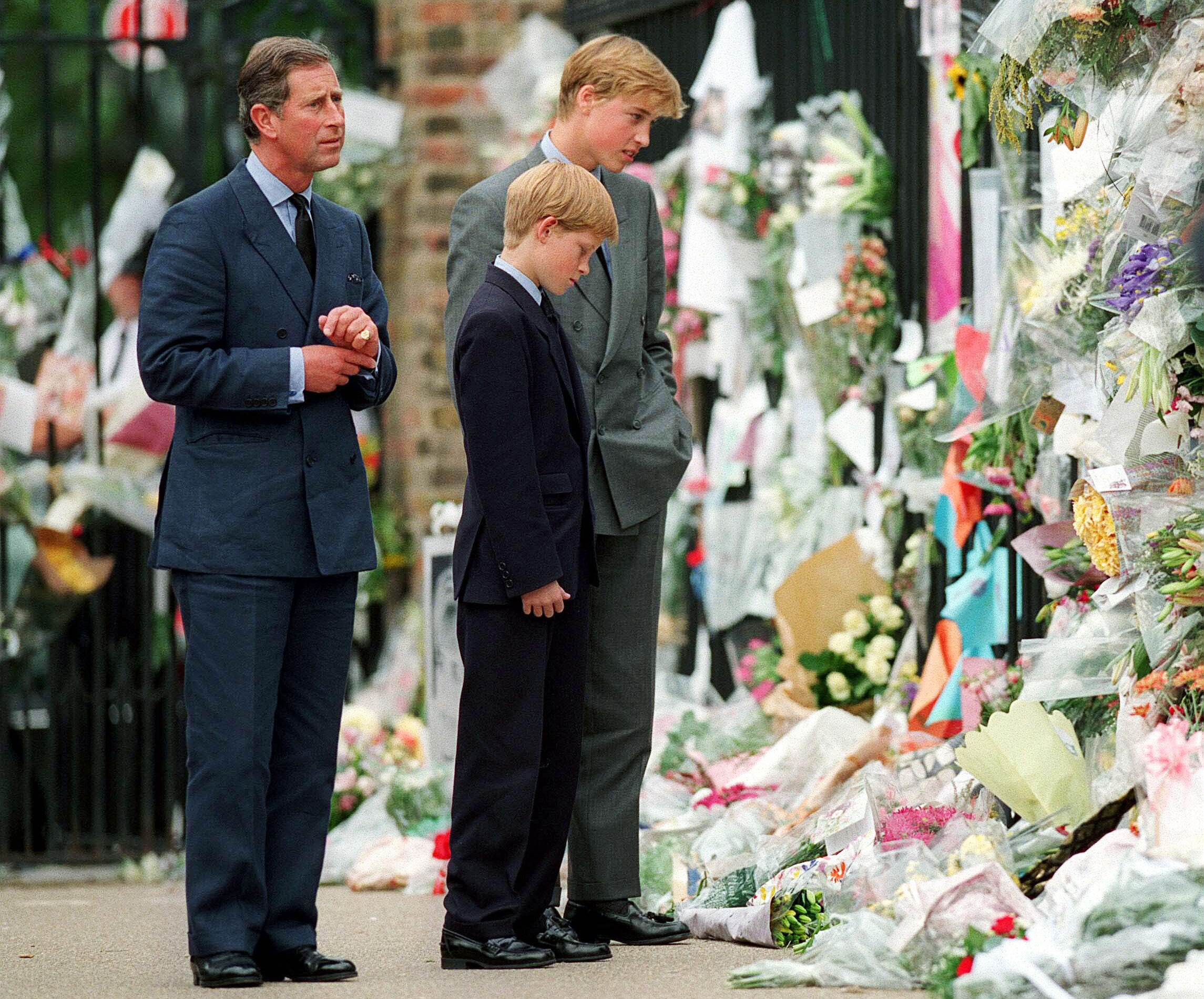
King Charles III with Prince Harry and Prince William as they look at the outpouring of tributes in honor of Princess Diana in London, England on September 5, 1997. | Source: Getty Images
As the world bids farewell to the man known by many simply as Crackers, his presence lingers — not only in official records or royal recollections, but in the quiet memories of those who knew him as a father, friend, and humble hero.
His story, grounded in loyalty, compassion, and quiet strength, will be remembered by the lives he protected, the family he loved, and the communities he served so selflessly.
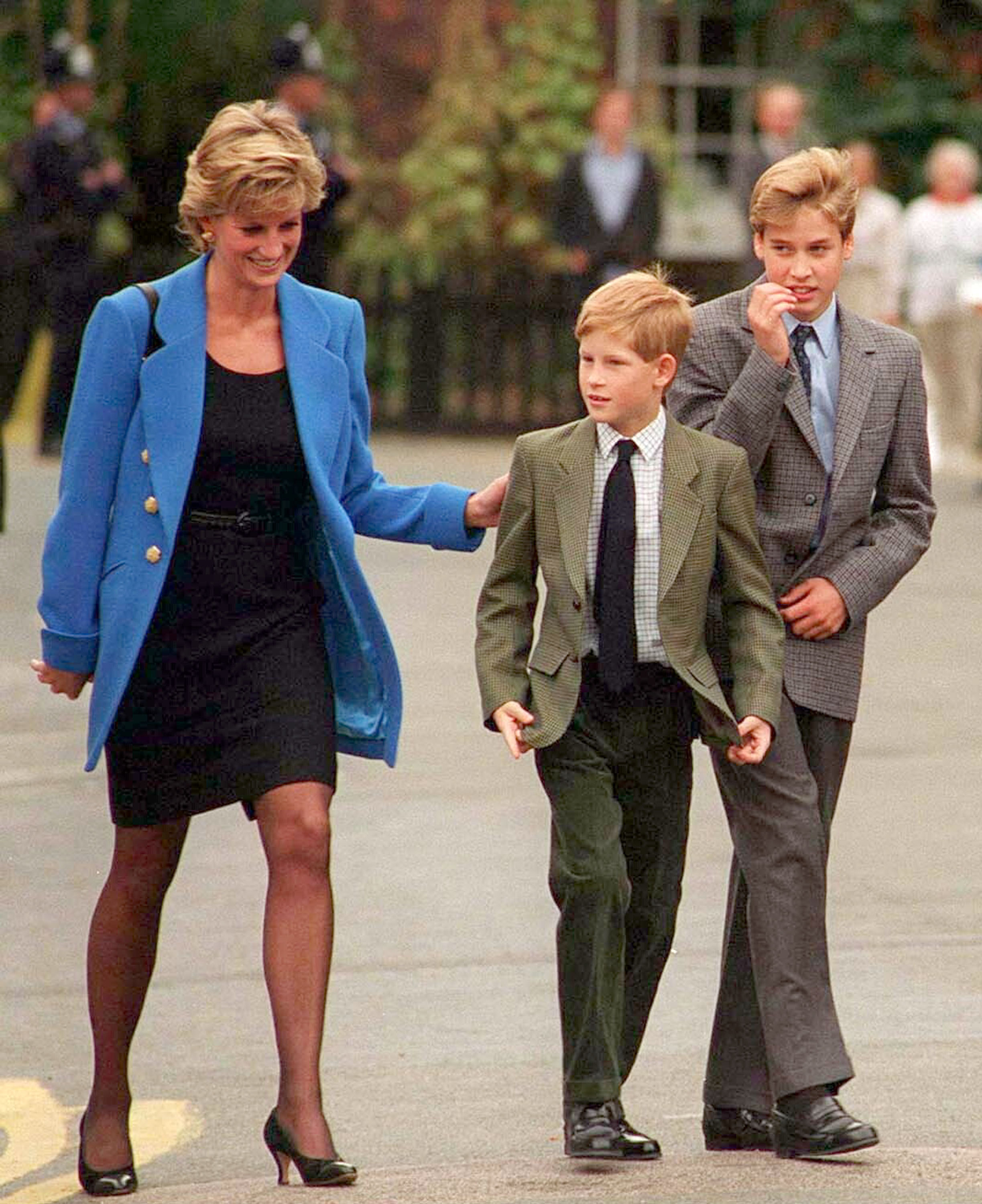
Princess Diana with Prince Harry and Prince William on the day Harry joined Eaton in September 1995. | Source: Getty Images
At this time, we wish to extend our most heartfelt condolences to Craker’s sons, other loved ones, the royal family, his friends, and everyone who knew and loved him. We hope for their healing as they mourn such a significant loss. RIP, dear Craker.
The tragic news follows an equally somber moment when William’s former flying instructor, Zach Stubbings died after a battle with cancer. He had spent nine years flying military helicopters, notably the Sea King, during which he was exposed to toxic exhaust fumes.
The father of three, who was aged 47, has left behind his wife, Anna-Louise Bates. His sister, Becci Louise, wrote a touching tribute to her beloved brother.
Her post on Facebook, read, “Today we said goodbye to my brother Zach he was loved by so many, and I’m so grateful to all that came to show their support for him, it was awe inspiring [sic]. Much loved brother, father to his boys, and son to my parents, you will be missed xx.”
Stubbings was diagnosed with blood cancer in 2012, a condition that ultimately led to his medical discharge from the RAF in 2015. “It was a huge knock,” he admitted. At the time of his diagnosis, he had no symptoms, which made it all the more shocking.
Initially, doctors suspected an allergy to his new work suits, but further blood screening revealed the cancer. Despite being told it was a type of cancer that never goes into remission, he managed it with regular blood tests.
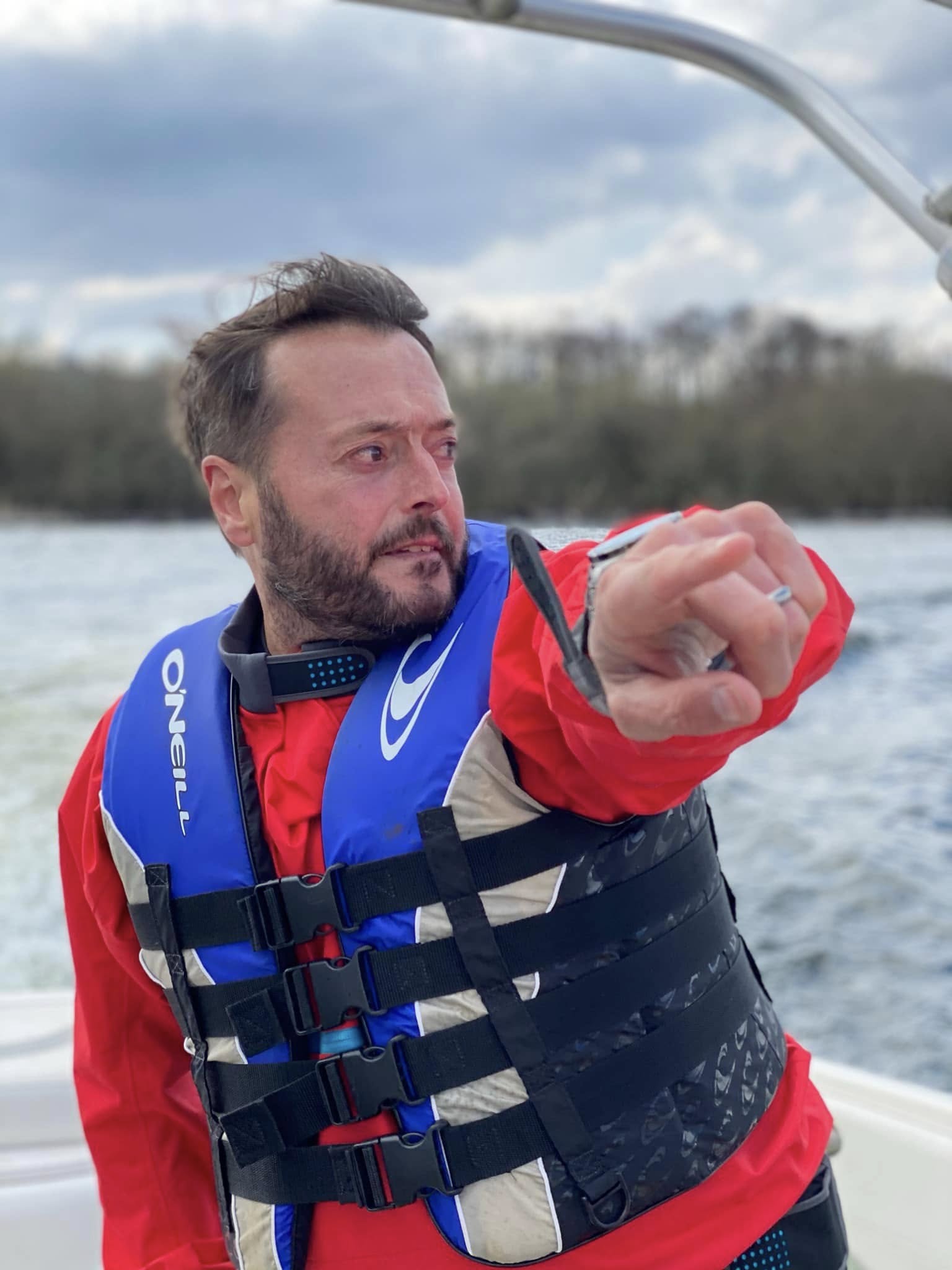
Zach Stubbings posing for a photo, posted on July 6, 2024. | Source: Facebook/anna.bates.376
Stubbings, who had managed to keep his cancer inactive for eight years following intense chemotherapy and a stem cell transplant, described the exposure to Sea King helicopter exhaust fumes as unavoidable.
The fumes, which stained seats and parts of the aircraft, circulated throughout the cabin, affecting both pilots and crew. The former RAF flight sergeant noted that many, including a local Navy pilot, had been diagnosed with cancer after prolonged exposure.
Despite the health risks, Stubbings fondly remembered his time working with William who joined 22 Squadron in 2010. Stubbings was William’s instructor.
William then spent three years flying the search-and-rescue helicopters when he was based at RAF Valley, Anglesey, between 2010 to 2013. “So, yes, Will was at risk along with everyone else,” Stubbings said.
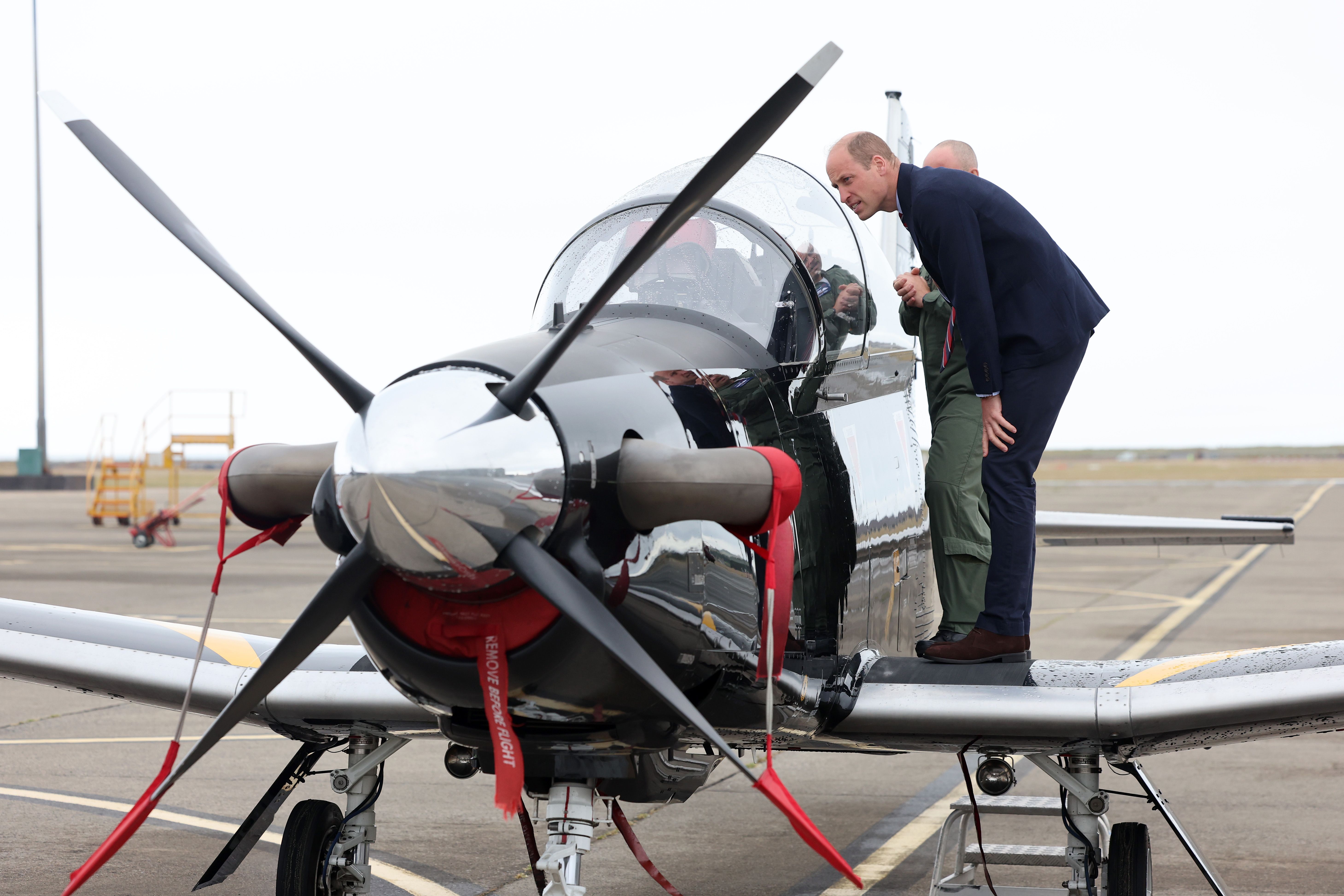
Prince William, Prince of Wales, gets an introduction to an RAF Short Tucano trainer aircraft during an official visit at RAF Valley in Holyhead, United Kingdom on July 9, 2024. | Source: Getty Images
Outside of work, Stubbings remembered how he and his team created special commemorative mugs for William’s wedding, which had a lasting impact on their bond.
“Each of us had our names on them. We had one made for Will too. Somehow it got broken. I can’t remember how. He was gutted,” he narrated. He also cherished the support he received from his colleagues, particularly from William.
After learning of his diagnosis, Stubbings shared a memorable moment with William in the operations room. Although he couldn’t recall the specifics of the conversation due to the shock, Stubbings remembered William being incredibly kind and sympathetic.
Their chat, one of the last he had before leaving for treatment, left a lasting impression on him. This diagnosis also significantly altered his life, forcing him to shift to lighter duties and give up his career plans. Stubbings, who had an exemplary service record and was on track for promotion to Master Aircrew, was grateful for the emotional support that helped him through such a difficult time.
Sadly, he has succumbed to the illness. Richard Sutton, a former navy commander who had worked alongside Stubbings during their time with the coastguard on search and rescue missions in 2015, shared that he passed away in January 2025 after being admitted to a hospice just weeks prior.
Sutton described his death as a “shock,” remembering Stubbings as a warm and friendly guy who was always full of positivity. He added that Stubbings was known for his catchphrase, “happy days,” which he uttered with a smile. Sutton emphasized that the former RAF flight sergeant was also a deeply devoted family man.
The two were in a WhatsApp group with six other former military aircrews, all of whom were diagnosed with cancer. Now, six of the eight former members have died in the past 20 months and only two are still alive. Sutton’s first cancer diagnosis was in 2011 and since then, he has battled nine tumors.
As one of the two still alive, Sutton notes, “It really brings home the reality of the seriousness of the situation. In a way I feel lucky I am still here. This is not an issue that’s gone away.”
In 2024, Stubbings bravely opened up about his exposure to harmful fumes while flying military helicopters and his battle with cancer. Despite his health struggles, he remained positive, focusing on making the most of each day he had left.
When he was asked how he was coping with battling a terminal illness, he shared, “You do what you can,” adding, “It does affect you but you make the most you can out of it. You can sit there and cry about it, but that’s the hand you’ve been dealt. I could have had my legs blown off.”
A grateful Stubbings also said, “My life expectancy was ten years, I was told, and for me I have outlived my life expectancy.” In his final year, Stubbings cherished moments with his son, who was just a toddler when he received his terminal diagnosis.
During half-term, he took time away to spend a few days alone with him, creating lasting memories despite the challenges he faced.
Stubbings had spent 15 years serving in the RAF between 2000 to 2015. He was among five individuals who received compensation from the Ministry of Defence (MoD) after being diagnosed with cancer.
Sadly, it took six years for the ministry to acknowledge that toxic fumes were responsible for his illness. In the later years of his career, following his diagnosis, he benefited from a strong support system provided by the ministry. However, the settlement he received was relatively small.
Meanwhile, numerous cancer patients and their families are currently pursuing legal action against the Ministry of Defence.
Louisa Donaghy, a senior associate at Hugh James Solicitors, who represents many affected families, described Stubbings’ death as a tragic loss that underscores the severe consequences of long-term exposure to helicopter exhaust fumes.
Donaghy lamented, “Zach’s dedicated service came at a terrible cost, and his battle with multiple myeloma underscores the urgent need for accountability. The MoD must take responsibility and support those affected.”
Clare Macnaughton, whose husband, Kai, died last year from angiosarcoma after years of exposure to helicopter fumes while working for the RAF, described Stubbings as a trailblazer. She credited him with giving other affected service members the confidence to challenge the MoD over their health conditions.
“When I spoke to him, he told me that the reason the military settled out of court it was because they didn’t want him to disclose in the court room the evidence he and his team had unearthed [sic]” revealed Macnaughton.
Macnaughton emphasized how service personnel are conditioned to obey orders and serve their country unconditionally. Hence, it was a deep betrayal to learn that the very organization they dedicated their lives to had knowingly poisoned them. She expressed that the MoD should be ashamed, adding, “They have blood on their hands.”
A spokesperson for the MoD sent their condolences to Stubbings’ loved ones, writing, “Any death is a tragedy and our thoughts are with the family and friends of Zack Stubbings at this difficult time.”
They emphasized the department’s commitment to personnel safety and that health protocols are regularly reviewed at the MoD. “We are in the process of testing the exhaust emissions of in-service helicopters, to ensure that we are meeting our duty of care for personnel. It is essential that we can assure our people of their safety at work,” the spokesperson revealed.
Stubbings will be missed by his friends, loved ones, and family. His wife has come face to face with grief again after she lost her first husband and seven-year-old son a decade ago when they were knocked over and killed by a careless driver.
Bates and Stubbings met via Believe, a charity she set up to campaign and highlight organ donation in the days after her tragic double loss in December 2015. The pair got married at the end of May 2020 in a private ceremony with family and close friends. Their union was later blessed at St. Martin’s Church in Roath and a reception was held at a secluded location.
The couple did not ask for presents and instead set up a fundraising page to raise money for Believe and Help for Heroes, a popular charity that helped Stubbings since he left the RAF after being diagnosed with blood cancer.
Sutton shared that Stubbings’ wife had shown remarkable strength despite the difficulties of the past few months brought by her husband battling cancer and dying. Losing him was another devastating blow, but she has been coping as well as anyone could in such a situation.
At this time, we wish to extend our most heartfelt condolences to Stubbings’ wife, son, other family members, friends, and all who knew him as they continue to mourn such a significant loss. We hope for their healing amid this devastating time. RIP, dear Stubbings.
